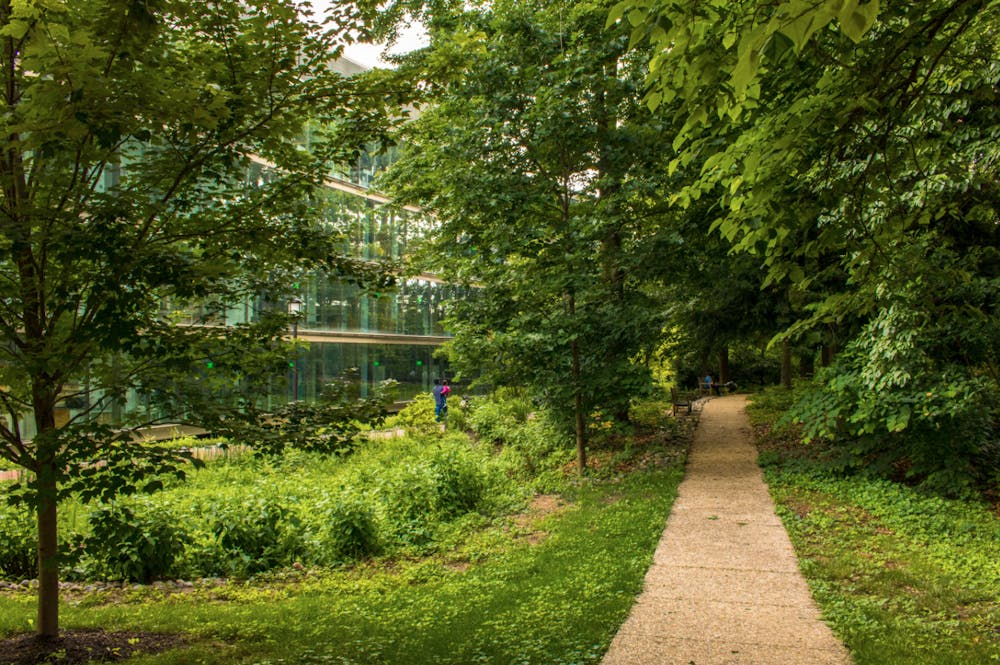In an email to the student body on Thursday, Vice Provost for Research Denis Wirtz announced that current density restrictions in laboratories will be relaxed starting on April 1. According to his email, lab spaces will now operate under the same capacity limits as classrooms.
Students working in laboratories will be required to have a 7.5-foot diameter around them at all times. According to Wirtz’s email, this means that labs will have a density of around 44 square feet per person, which is down from the current standard of 150 feet per person.
Laboratories will maintain their mask mandate and ban on food and drinks. Meetings in faculty offices will not be allowed; however, up to 10 people including the principle investigator (PI) can meet in lab spaces as long as everyone is 6 feet apart. Although increased in-person research will be allowed under the loosening restrictions, remote options must be made available for students who are uncomfortable with in-person activity.
Sophomore Andre Vu, who does research on stem cells, believes that the new restrictions are reasonable given the current state of the pandemic.
“With the increasing amount of vaccines that are being released, this is a natural next step,” he said.
Sophomore Alex Nguyen, who studies retinal regeneration in zebrafish, also cited the increasingly vaccinated proportion of Maryland’s population as a reason that easing COVID-19 restrictions in laboratories seems safe.
As of Friday, March 26, 27.6% of Maryland residents have received the first dose of the vaccine and 14.8% of the state’s population is fully vaccinated.
However, sophomore Mark Testa, who works in a chemistry lab studying the release of panel particles into the environment, is more hesitant about the new restrictions.
“Like with anything these past few months, you don’t know how things are going to turn out,” he said. “There’s always that sense of doubt with how little changes like this could affect how everything seems to already be working.”
In his email, Wirtz highlighted that the new guidelines are subject to change if COVID-19 infection rates increase.
“We will continue to closely monitor the status of the pandemic nationally, locally, and within the Johns Hopkins community, and if we can further increase the density of activity in our labs, we will do so incrementally,” he wrote. “But if conditions worsen, we will not hesitate to enact stricter standards to protect the health and safety of our lab-based students, faculty, and staff.”
Wirtz also emphasized the importance of tri-weekly COVID-19 testing, handwashing and social distancing, even for those who have been vaccinated.
While Nguyen noted that his lab is small and may not change its operations under the new restrictions, he believes that increasing capacity restrictions is an important first step in preparing people for life after the pandemic.
“It will help reintroduce people to doing stuff in person,” he said.
Vu’s lab, on the other hand, will begin functioning at a higher capacity under the new guidelines.
“The PI wants us to come more often and be able to have more people do things together so that we can work together,” he said. “The lab is mostly for learning experiences for undergraduates so that they can learn lab skills and develop a scientific thought process, so it does help to have more people involved.”
Vu noted that it has been hard for the undergraduates working in the lab to meet each other because only one student was allowed into the lab at a time.
Testa believes that laboratory research will be more effective under the new guidelines.
“Being a part of a lab, it’s very important that we get a lot of work done in very little time,” he said. “If we can slowly start to do that in a safe environment, then we should.”





